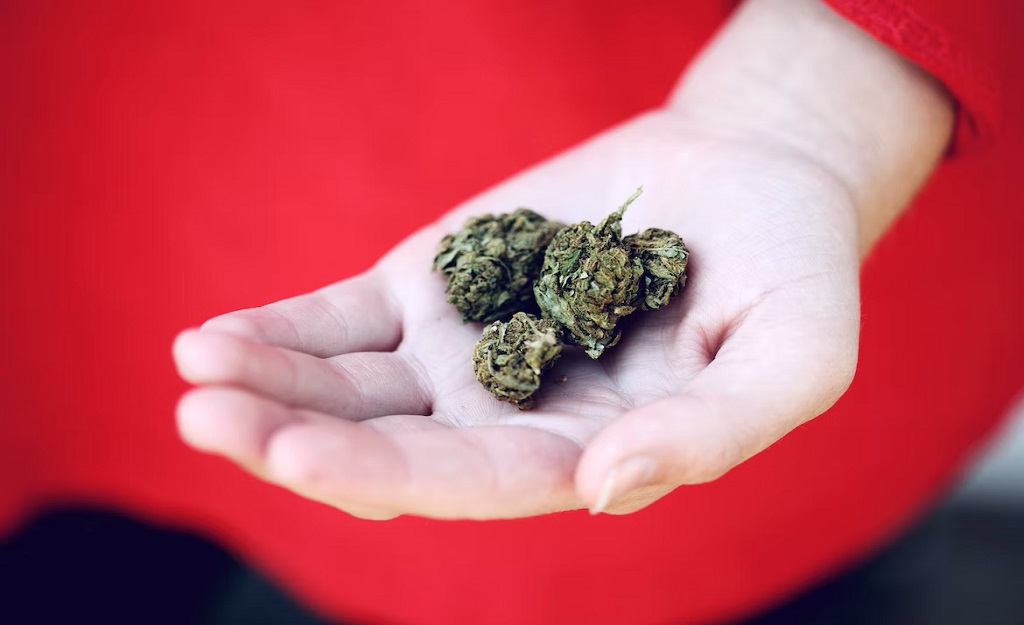There is detailed research that shows inflammation is associated with a wide range of chronic diseases. Inflammation is a symptom that can last as long as the disease or condition is present. For some people, this can be an everyday hurdle.
There are many medications and remedies associated with helping sufferers live with this mild to severe condition. Medical marijuana in Canada is used to treat inflammation. No matter which chronic disease (arthritis, cancer, diabetes, heart disease, etc.), cannabis can be a one-size-fits-all approach. The benefits of cannabis are not limited to reducing inflammation, either. There are many other incidental therapeutic properties too.
How Does Cannabis Help Treat Inflammation?
The most significant benefits of cannabis come from cannabinoids. These are the active chemical compounds of the cannabis plant. We will talk about these in more detail shortly. Some of these cannabinoids are endogenous components. What this means is that they interact with the endocannabinoid system.
The Endocannabinoid System
Understanding the endocannabinoid system (ECS) is essential to grasping how cannabis benefits sufferers of inflammation. The ECS is a signalling network that keeps the human body’s internal processes stable. It also helps maintain neuroplasticity.
A network of receptors and signalling molecules is located along the human vertebrate. This network is part of the central nervous system. And here, there are two receptors called CB1 and CB2. When the body is out of balance, endocannabinoids (ECBs) bind to these receptors and send many cascading signals that help the body maintain homeostasis.
The human body naturally produces ECBs. However, some people struggle to make them due to diet, inactivity, or chronic disease. A lack of ECB production creates an imbalance in the body, which in turn can trigger anxiety, depression, inadequate immune response, and chronic inflammation.
A balanced ECS resolves inflammation. It regulates the immune response. When life seems hard, the body realizes. By signaling a healthy ECS, the risk of anxiety and depression are minimized.
How Do Cannabinoids Treat Inflammation?
Let’s get back to cannabinoids. Remember, these are compounds from cannabis like tetrahydrocannabinol (THC) and cannabidiol (CBD), which are the active ingredients in cannabis that interact with the ECS.
Research has found that cannabinoids are useful because they interact with CB1 and CB2 receptors in the ECS. In this way, cannabinoids can reduce the inflammatory response and other disease symptoms. This same research found that cannabinoids brought about a multitude of anti-inflammatory pathways for a variety of autoimmune disorders. These disorders include hepatitis, rheumatoid arthritis, multiple sclerosis, and colitis.
It is inconclusive, but cannabinoids may be beneficial to people living with cancer due to their anti-inflammatory properties. There is research that suggests that, by suppressing the inflammation, cannabinoids may be able to reduce tumour growth.
Both CBD and THC have been seen as the major cannabinoids to inhibit disease symptoms and progression. CBD takes center stage a bit more than THC, like in this study. It has antioxidant effects and is also less stigmatized than THC in the medical world. CBD is not psychoactive. CBD is also legal in more places worldwide than THC, a psychotropic compound. This stigma does not hold for medical marijuana in Canada.
Other cannabinoids and cannabinoid derivatives are tested for anti-inflammatory properties as well. However, the true heroes are CBD and THC. This may explain the prolific medicinal and recreational cannabis products available showcasing these two cannabinoids.
Best Anti-Inflammation Strains for Medical Marijuana in Canada
This is a hybrid, also known as “Maui Purple.” Purple Maui is a cross between Maui Wowie and Grand Daddy Purple strains, making it 80 percent sativa and 20 percent indica. It has a sweet, fruity aroma of berries and grapes with just a hint of pine. The user can experience body and head effects from the 13 to 15 percent THC levels.
This indica-dominant hybrid combines OG Kush and Durban Poison. Girl Scout Cookies has a THC content of over 25 percent and is low in CBD content. Users have said the taste is minty and candy-like. It is a great flavour addition if you are making your own edible cannabinoids. This strain better serves an experienced cannabis user who suffers from inflammation. Its potency provides full-body relief and relaxation, which makes it ideal for people who battle pain from inflammation.
Pink Kush is the offspring of OG Kush. This indica is THC-heavy and delivers an intense body high. As medical marijuana in Canada, it has been used to treat anxiety, depression, appetite suppression, and inflammation. The CBD levels are as low as 1 percent. The taste and aromas have hints of pine, wood, and flowers.
Non-Flower Products
Medical marijuana in Canada is not limited to cannabis flowers. Some other cannabis products that users find helpful for inflammation in non-flower form are: Power Up CBD Tincture, Mota THC Spray, and CBD Isolate 99.6%.
What are the Best Methods of Consumption?
Health-conscious consumers and medicinal users often prefer to consume cannabis through a means other than smoking. There are many ways to ingest any of the above-mentioned flower strains by making your own edible cannabinoids at home. Alternatively, you can opt to buy pre-made cannabis food or drinks online from a dispensary. The choice is up to you. If you prefer to smoke it, eat it, vaporize it, take an extract or oil, then you really can’t go wrong.
Smoking or eating cannabis has not been found to reduce inflammation more than any other method of consumption. The important thing is to ensure you are getting the cannabinoids that work best for you. Whether that is THC, CBD, CBN (basically aged THC), or another cannabinoid, the choice is yours. Sometimes it takes some experimenting based on your own specific condition.
Obviously, if you suffer from a condition like lung cancer, then perhaps smoking cannabis is not recommended. You may benefit from the properties, but another means would probably work better. For any questions about medical marijuana in Canada, it is recommended you speak to your prescribing doctor.

